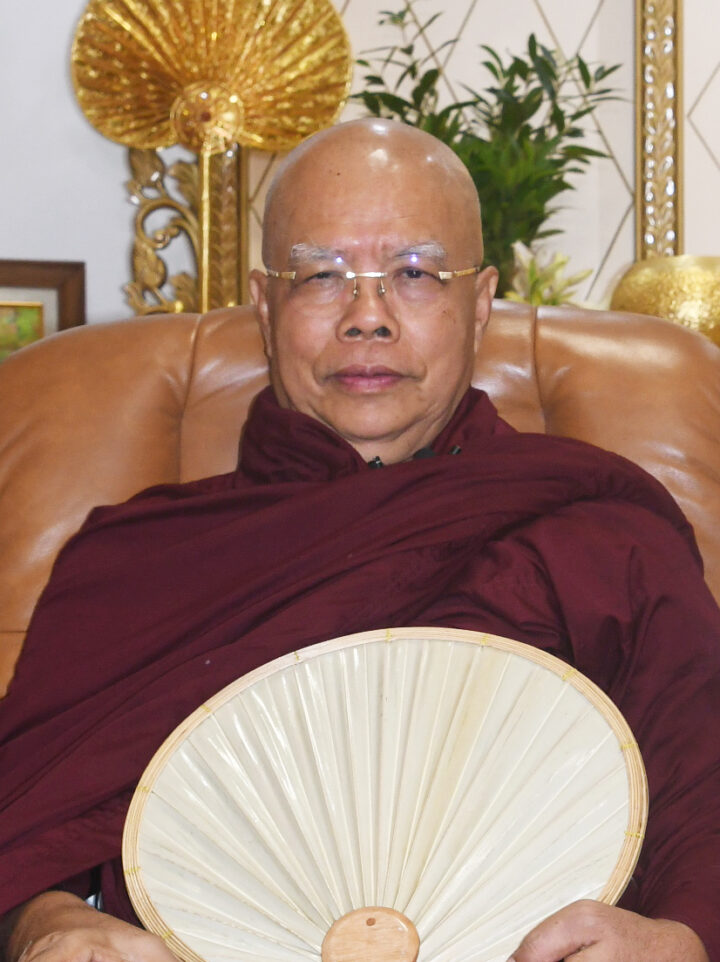The transition from the Myanmar calendar year 1386 to 1387 marks the New Year season, which occurs once a year. Because of this annual change, it is referred to as the Myanmar Thingyan (Water Festival). Time constantly changes — every second, every minute — and with change often comes progress, but also sometimes decline. Physically, as time passes, there tends to be a gradual weakening or deterioration.
When it comes to the mind, for virtuous people, every time there is a change, it leads to growth and improvement — change becomes something better than just good. But for others who are not virtuous, change can cause their good thoughts to turn toward negative ones. That’s why, during the New Year, the idea is to change like the virtuous — a transformation that strengthens everyone’s minds. It’s a time to cast away bad thoughts and negative spirits, and to develop good, positive mindsets. This is why the Thingyan (Myanmar New Year) transformation is marked as a time for renewal. For the virtuous, transformation means rising from bad to good — and that’s already virtuous. But it doesn’t stop there: they go from good to better, and from better to the best and most noble.
For Buddhists, there’s the progression of becoming four steps of Arahat. This progression happens because the minds of virtuous individuals become more developed and transformed. When we look into how these virtuous people change, we notice that where there was once little loving-kindness (Metta), it begins to increase. And not just Metta—compassion (Karuna), sympathetic joy (Mudita), and equanimity (Upekkha) also grow stronger. Because of this, they help one another as much as they possibly can with loving-kindness, compassion, and joy. Some may be fulfilled in this life, yet when the burdens of past unwholesome karma that come with the cycle of existence arise, they still have to face them. At that time, others save them as much as they can—rescuing, helping however possible.
I won’t be emotionally burdened — I’ll just do what needs to be done, help where help is needed, and support where support is needed. The outcome depends on the Kamma they are capable of receiving. Helping others with this understanding is called upekkha (equanimity).
As for the noble ones, their intentions how do these qualities become so strong? It’s because the great noble beings of the past, who had already become Buddhas, gave prophecies to those who would become future Buddhas. When these future Buddhas received the prophecy, they would say, “A Buddha-to-be has nothing to do with building a household or worldly affairs—why would I remain in household life? I will renounce and become a monk.” They declared this with great conviction.
As for good people, I’ve slightly rephrased my words and said: “I am a good person. One must recognize oneself as a good person. A good person doesn’t do things that shouldn’t be done or things that are inappropriate Good people, with a good heart and good deeds, bring good outcomes. Those outcomes are not only for their own happiness and benefit, but also for the benefit of their relatives, their community, their town, their country, and their religion. With a good mindset, constantly striving to apply these three key sentences with deep commitment, one can create positive outcomes for everyone.
As we enter the New Year, here is a gift of words and a gift of Dhamma — a New Year’s gift urging everyone to carry forward both personal and collective benefit as much as they can.”
May everyone have a good spirit, each individual with their own, and may they become virtuous people who can carry both their own benefit and the benefit of others.
#TheGlobalNewLightOfMyanmar

